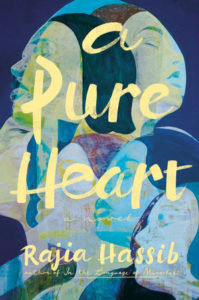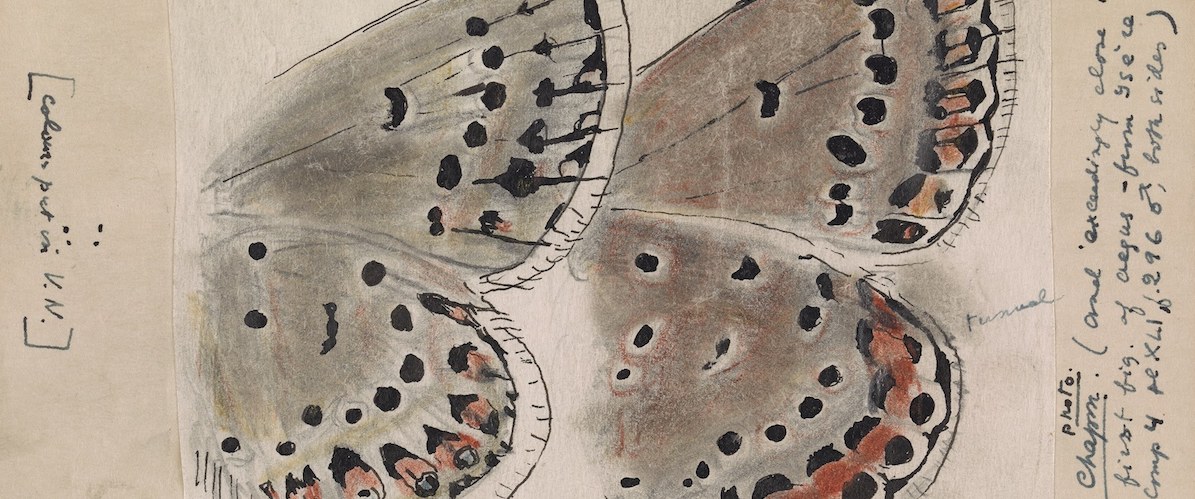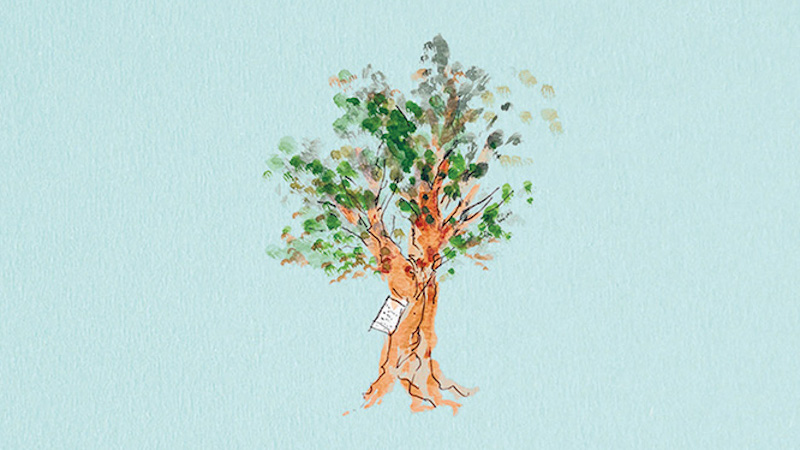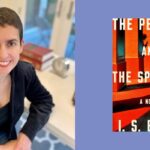Lessons From Nabokov: Finding Freedom in a Foreign Language
Rajia Hassib on Mastering a Third Language
I own a 19-year-old copy of Vladimir Nabokov’s Invitation to a Beheading. I place its age from the barcode on its back, which states the name of the bookstore where I bought it: Borders.The one that used to sit on the ground floor of the World Trade Center, the one I’d been to multiple times during the 18 months I spent in New York when I first arrived from Egypt in November of 1998. I try to remember the moment I stood before the fiction section at Borders, scanning the shelves, drawn, perhaps, to the curious title. In that moment, I did not know just how clearly buying a Nabokov novel at the World Trade Center would foreshadow my life to come. I was 23.
Long before I read any of his books, I developed a fascination with Nabokov. I had returned to school at 32 to change careers and study literature in English. I nodded in approval whenever someone mentioned Lolita, inevitably in tones of subdued awe. My nodding had nothing to do with Nabokov’s style, dizzying manipulation of intertextuality, or bold subject matter. When I heard his name, all I knew was this: He was a Russian who wrote in English. Surrounded by American students half my age, ones who, I suspected, had an inborn connection to the English language that I would never possess, I clung to Nabokov’s success at doing that which I yearned to do.
Listening to my peers speak, naturally and with no foreign accent, was often enough to plunge me head-first into self-doubt, to make me wonder, again, at the folly that drove me to abandon a career in architecture to write fiction. In English. But, in those moments of despair, just remembering that Nabokov wrote in his second language was enough for me to adore him.
Even then, I was not blind to the logical fallacy that fed this adoration. Still, drawing an imagined link between Nabokov and me, I held on for dear life, even though the link was ridiculously feeble: He was an immigrant; I was an immigrant. He wrote in English, and, it (apparently) followed, that I would do the same. I knew the logic was flawed, but I did not care.
I was pursuing a dream so audacious that I willingly clung to the slimmest shadow of hope for its plausibility. Since I was seven, I had wanted to be a writer, had written and published a couple of short stories in Arabic while living in Egypt, never anticipating that I would end up in the US. Five years after arriving in the US, I sat at a desk in a two-bedroom apartment in Los Feliz, and, in a spiral notebook, wrote down the arguments for and against making the switch to writing in English.
At the heart of my dilemma was a question of morality: Was I allowed to embrace a language that, beginning in forth grade, I was taught as a second foreign language (after German), to claim English as my own without birth right? And whose authority was I afraid of—who decided what I could or could not do? Was writing fiction in a foreign language even doable? Had anyone else done it?
Much later, I would come across many writers who wrote in their second language, several of them women of Arab descent, but, on that day in 2006, sitting at a borrowed desk in a furnished Los Feliz apartment, the only name that came to my mind was Nabokov’s.
In those moments of despair, just remembering that Nabokov wrote in his second language was enough for me to adore him.Now I know better than to assume great men are also good men. I’ve read enough about Nabokov’s disdain of women writers, (he claimed they were “of a different class”—I’m assuming he did not mean a superior one), to keep my fascination with him in healthy check. Yet I was still grateful enough to him that, when I was writing my first novel, In the Language of Miracles, I decided to give my young protagonist a fascination with butterflies as a tribute to Nabokov. I imagined that the delicate, colorful insects would form another fragile link between me and the man who gave me such hope back when I needed it most, whose work had assured me that writers could write in their adoptive languages, and that they could even do it well enough to be known as “one of the 20th century’s master prose stylists,” as the back cover of my edition of Invitation to a Beheading states.
Now, as I sit in my home in West Virginia, a butterfly flutters by my window—honestly!—and I see this, too, as a sign that I was right to hold on to such an audacious dream.
After I turned in the final manuscript of my second novel, A Pure Heart, to my editor, I needed to return to Nabokov. By then, I had corrected some of that embarrassing gap in my education, reading several of his novels, but I had still never read Invitation to a Beheading. When I held it in my hand for the first time in years, I felt a tenderness toward my 23-year-old self. I imagined young me, a brand-new immigrant, standing in front of the shelves at Borders, picking out a novel about a condemned man written by a Russian immigrant, not knowing that the World Trade Center would come down a mere two years later, and that I and countless other American Muslims would spend a lifetime apologizing for that event, not knowing that I would, indeed, publish novels in English.
But that play of ignorance and knowledge is, perhaps, also part my self-willed symbol system. In Invitation to a Beheading, the imprisoned Cincinnatus writes: “I know something. I know something. But expression of it comes so hard! No, I cannot . . . I would like to give up—yet I have the feeling of boiling and rising, a tickling, which may drive you mad if you do not express it somehow.”
I would have been driven mad, if I had not expressed all I knew and all I struggled to learn through writing, if I had not embraced this language I love so much, despite not having been born to it, if I had not begged it to love me back just enough to allow me to nestle inside its cocoon as I sit in the cold reality that is immigrant life in 2019, typing on at my desk, chasing Nabokov’s butterflies, willing my own reinvention. To Nabokov, who probably would neither have approved of nor cared about my writing, I say this: thank you for opening this door through which I now walk.
Now, I make my own path.
_____________________________________

Rajia Hassib’s novel, A Pure Heart, is out now from Viking.
Previous Article
Dear Yusef Komunyakaa:A Letter From Gregory Pardlo




















